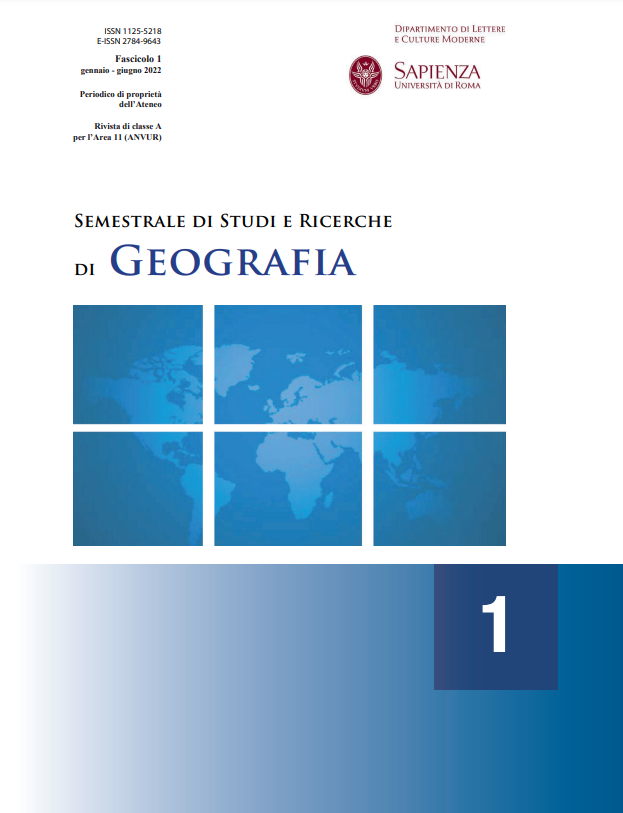Look, Represent, Imagine: mapping of geocartographic assets and documents for the organization of knowledge
DOI:
https://doi.org/10.13133/2784-9643/18042Keywords:
geo-documentary heritage, cartographic heritage, museumization, knowledge organizationAbstract
The current Geography section of the Library of the Department of Modern Letters and Cultures contains geo-documental and cartographic heritage collected since 1877. Over 15,000 objects (maps, models, globes, tellurs, epidiascopes, glass photographic plates, atlases and rare books, etc.) have been the subject of restoration, digitization and metadata interventions for about a decade with the aim of fully recovering their cultural value activating practices of reuse and giving new meaning, which allow an effective and complete patrimonialization. This proposal intends to further structure the process on the level of knowledge organization in order to build "other" narratives, different from the past not only on a diachronic level, but also because they are attentive to historically neglected and/or unrecognized areas and dimensions, integrating the perspective of gender and postcolonial studies. We will then proceed with the creation of thematic, experiential, interdisciplinary path, designed to be used and enjoyed through interactive tools to be placed on equipment already acquired thanks to previous University funding (55'' interactive pixxboard, 43'' interactive totem and 86” professional monitor). Through the creation of geo-cartographic tools, storymaps for images, video reconstructions and interviews with privileged testimonies, the research intends to put a value on the geo-documental and cartographic heritage of the Department in order to rethink and reshape the founding ideas and thoughts of a pivotal discipline, such as geography, which fulfills in the training of the younger generations the indispensable social function of critical knowledge that cannot be substituted for the understanding of territorial complexity, so that they themselves acquire and make their own basic projects to establish themselves as "citizens of the world".
Downloads
Published
Issue
Section
License
Copyright (c) 2022 Semestrale di studi e ricerche di geografia

This work is licensed under a Creative Commons Attribution 4.0 International License.
Gli autori che pubblicano su questa rivista accettano le seguenti condizioni:- Gli autori mantengono i diritti sulla loro opera e cedono alla rivista il diritto di prima pubblicazione dell'opera, contemporaneamente licenziata sotto una Licenza Creative Commons - Attribuzione che permette ad altri di condividere l'opera indicando la paternità intellettuale e la prima pubblicazione su questa rivista.
- Gli autori possono aderire ad altri accordi di licenza non esclusiva per la distribuzione della versione dell'opera pubblicata (es. depositarla in un archivio istituzionale o pubblicarla in una monografia), a patto di indicare che la prima pubblicazione è avvenuta su questa rivista.
- Gli autori possono diffondere la loro opera online (es. in repository istituzionali o nel loro sito web) prima e durante il processo di submission, poiché può portare a scambi produttivi e aumentare le citazioni dell'opera pubblicata (Vedi The Effect of Open Access).


